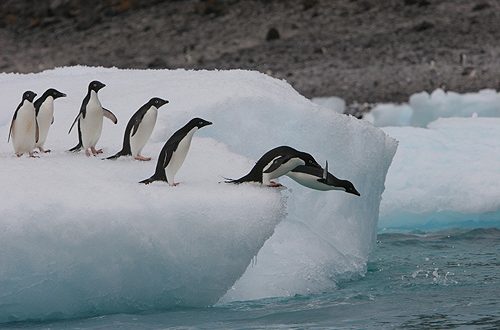The largest marine reserve in the world has been created through an agreement sealed by 24 nations and the European Union (EU). The Ross Sea, a deep Antarctic Bay 3,500 kilometers south of New Zealand spanning 1.55 million square kilometers, has been designated as off-limits from commercial fishing and mineral exploitation.
“This decision represents an almost unprecedented level of international cooperation regarding a large marine ecosystem comprising important benthic and pelagic habitats,” said CCAMLR Executive Secretary, Andrew Wright. “It has been well worth the wait because there is now agreement among all Members that this is the right thing to do and they will all work towards the MPA’s successful implementation.”
Now, 598,000 square miles will be protected, marking only the second time in history an MPA has been created on the high seas. The first was the creation of the South Orkney Islands southern shelf MPA covering 58,000 square miles in the south Atlantic in 2009.
According to the CCALMR, the MPA will officially go into force in December 2017 and will limit or entirely prohibit certain activities to meet management objectives. 72 percent will be a ‘no-take’ zone that will be entirely off limits to all fishing and other extractive activities, while some other smaller sections may permit some take of fish and krill for scientific research. It’s hoped the designation will not only preserve biodiversity, but also offer scientists the opportunity to study an untouched area.
The nutrient-rich waters of the Ross Sea support a variety of marine life ranging from tiny krill to giant marine mammals. It’s home to nearly 100 species of fish, including toothfish, who have been increasingly targeted by fisheries.
It’s also important habitat for Adélie and emperor penguins, seabirds including petrels and skuas, crabeater, leopard and Weddell seals and hourglass dolphins, along with minke, sei and sperm whales, and rare Ecotype C orcas, who are one of four known varieties of orca who live in the Antarctic.
While the designation will need to be renewed after 35 years, it’s supporters are still hailing it as a major victory for the protection of the world’s oceans.
“The agreement is for 35 years, not permanent, but this is a HUGE step. Bravo to CCAMLR, the group of governments involved, for this action to the Antarctic and Southern Ocean Coalition and all the associated people and groups who have helped over the years to make this day happen!” said Erich Hoyt, Marine Protected Areas lead for Whale and Dolphin Conservation.
Agencies/Canadajournal
 Canada Journal – News of the World Articles and videos to bring you the biggest Canadian news stories from across the country every day
Canada Journal – News of the World Articles and videos to bring you the biggest Canadian news stories from across the country every day



